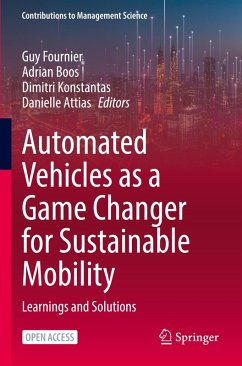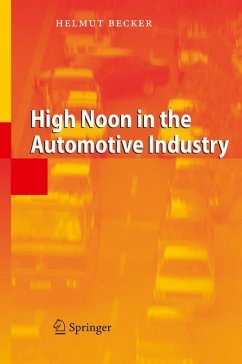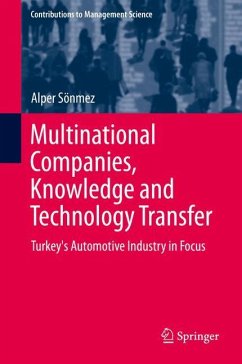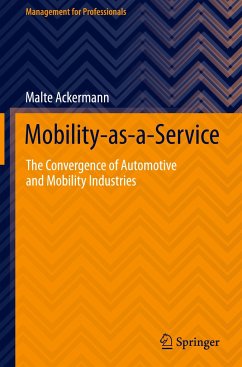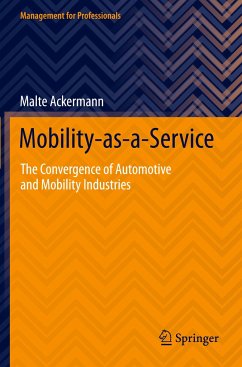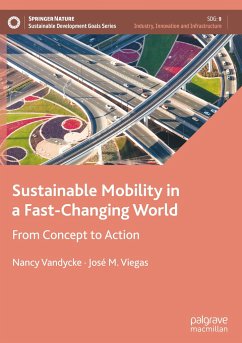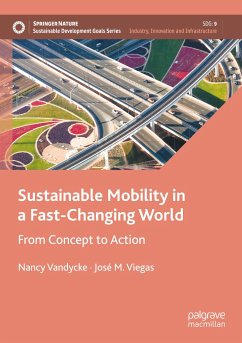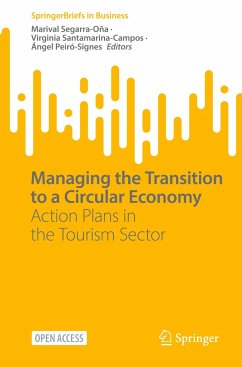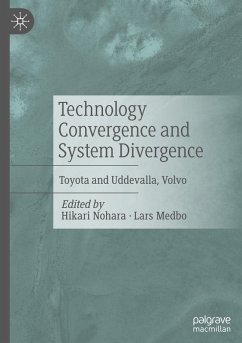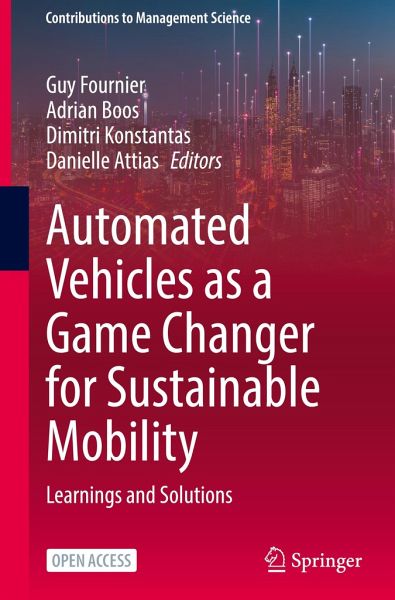
Automated Vehicles as a Game Changer for Sustainable Mobility
Learnings and Solutions
Herausgegeben: Fournier, Guy; Boos, Adrian; Konstantas, Dimitri; Attias, Danielle
Versandkostenfrei!
Versandfertig in 6-10 Tagen
38,99 €
inkl. MwSt.

PAYBACK Punkte
19 °P sammeln!
This open access book explores a vision for a sustainable future in urban mobility through the AVENUE project, showcasing full-scale demonstrations of automated minibuses in European cities. AVENUE pioneers on-demand, door-to-door services, challenging traditional fixed bus itineraries. It delves into the implementation of automated vehicles, emphasizing safety, services, cybersecurity, and accessibility. Part two evaluates the economic, environmental, and social impacts on companies, citizens, and cities. By integrating automated vehicles into Mobility-as-a-Service and Intelligent Transport S...
This open access book explores a vision for a sustainable future in urban mobility through the AVENUE project, showcasing full-scale demonstrations of automated minibuses in European cities. AVENUE pioneers on-demand, door-to-door services, challenging traditional fixed bus itineraries. It delves into the implementation of automated vehicles, emphasizing safety, services, cybersecurity, and accessibility. Part two evaluates the economic, environmental, and social impacts on companies, citizens, and cities. By integrating automated vehicles into Mobility-as-a-Service and Intelligent Transport Systems, the book argues for the using of automated vehicles as game changer towards a transformative shift to sustainable, citizen-centric mobility. It advocates for efficiency, flexibility, and resilience of the transport system without imposing coercive transformation policies.





